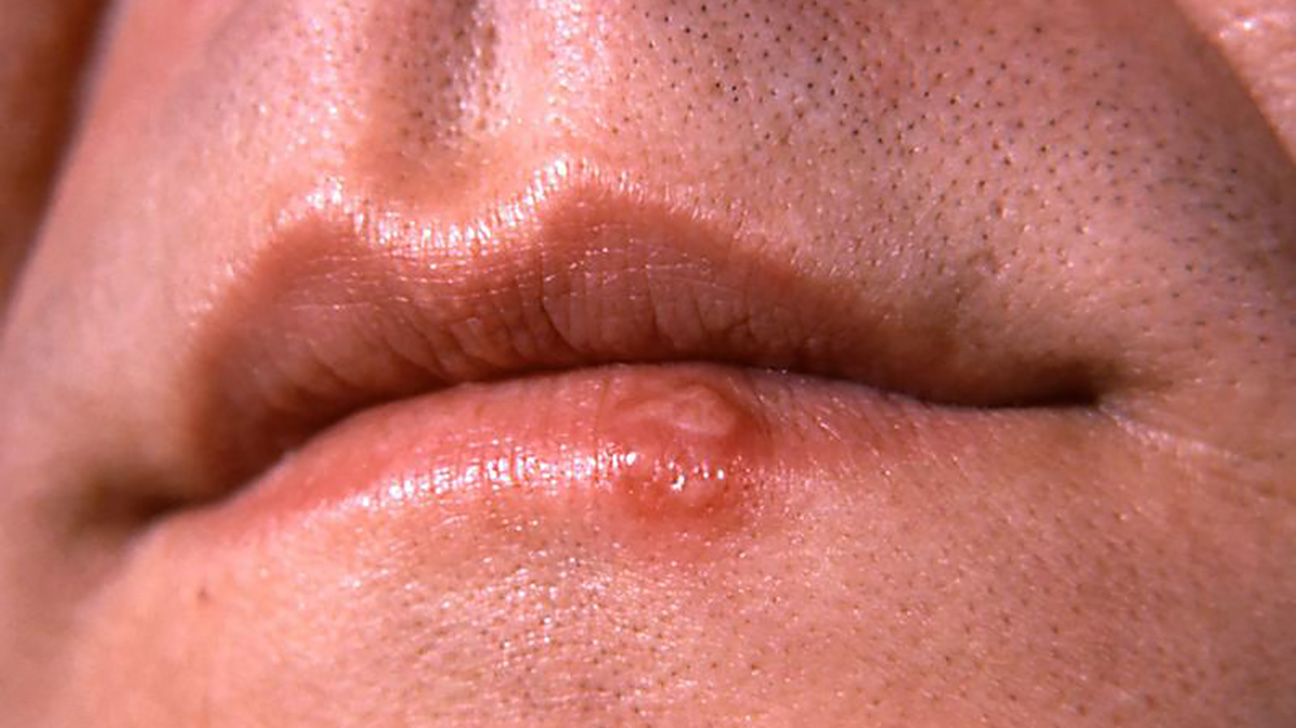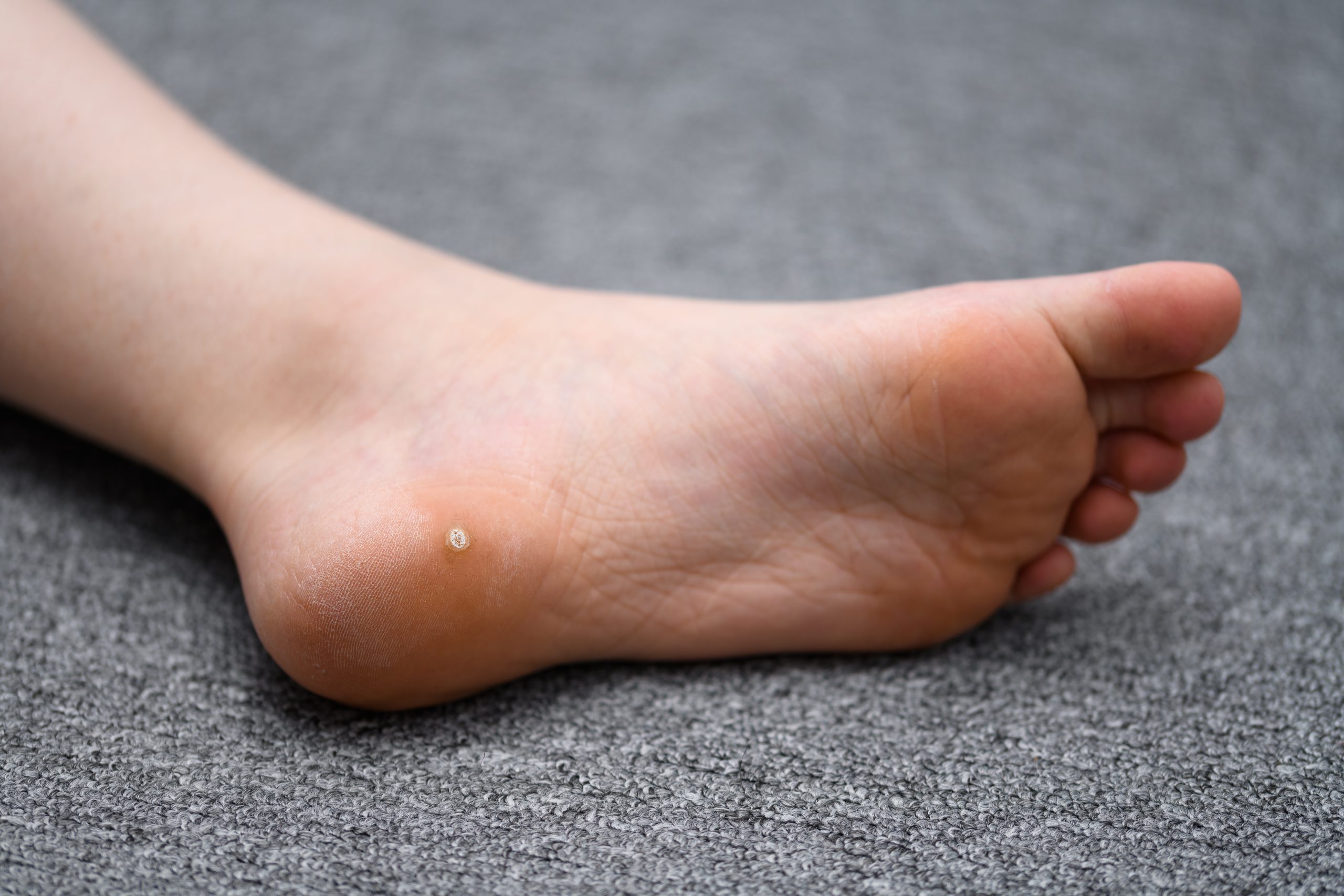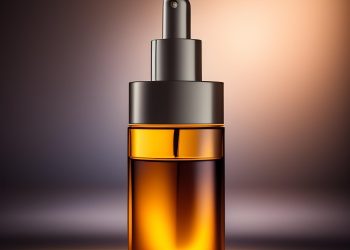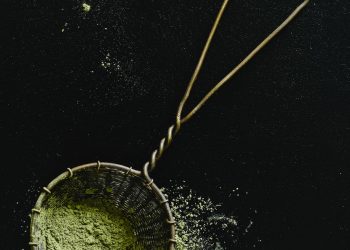Are you suffering from a herpes infection such as visible outbreaks on your face and genital regions? Or is there anyone you know who is suffering from herpes and they’re in a complete panic mode?
Clearly the pain and discomfort caused by a herpes infection are unbearable and very unpleasant!
People would rather suffer from fever or cold than be one of the ‘herpes victims.’
However, don’t worry, many natural remedies could help you to get rid of herpes.
Today you’ll learn some simple home remedies for herpes viral infections.
Don’t wait for your herpes viral infection to progress into something more serious before you do something about it.
Control it using these potent home remedies that have been proven by scientific studies.
In this post, you’re going to learn more about the following:
- Some information on herpes, and how do you get herpes
- 14 Home remedies for relieving herpes outbreak
- How to prepare them
- How to use these home remedies for best results?
RELATED: 18 Home Remedies to Get Rid of Cold Sores Naturally
Herpes: A Quick Guide
Herpes is an infection caused by the herpes simplex virus (HSV) and can appear in various parts of the body.
However, the most common herpes comes in two types: oral herpes and genital herpes.
Both types of herpes infections are highly contagious.
The first type can be transmitted through kissing or sharing of utensils, while the second one can be passed on through sexual intercourse [1].
Caused by herpes simplex virus type 1 (HSV-1), oral herpes is transmitted from one person to another through close contact such as kissing or by sharing things that can spread infected saliva like toothbrushes and eating utensils [1].
Genital herpes, on the other hand, is marked by the appearance of blisters in the genital area or rectum but it can also be found in other locations, typically on parts below the waist [1].
This condition is most commonly caused by herpes simplex virus type 2 (HSV-2) transmitted through sexual intercourse, but sometimes, it can also be caused by HSV-1 through oral to genital contact [3].
Symptoms of Herpes
It’s important to know that herpes may exist with or without symptoms.
Apart from the blistering sores in the body parts mentioned, other indicators of infection include:
- Itchiness
- Painful urination
- Swollen lymph nodes
- Loss of appetite
- Headache
- Fever
- Exhaustion
In some cases, the viral infection can affect the eyes, resulting in a condition known as herpes keratitis.
Some of its symptoms are:
- Eye pain
- Eye discharge
- Gritty sensation inside the eye
RELATED: 18 Effective Ways to Get Rid of Pinkeye
Who Are at Risk?
Herpes can affect people of all ages.
In the case of genital herpes, the following factors up to the risk of contracting the infection:
- Sexual intercourse with different partners
- Weak immune system
- Sexual intercourse without the use of condoms
- Another sexually transmitted disease
15 Home Remedies to Get Rid of Herpes Outbreaks
1. Garlic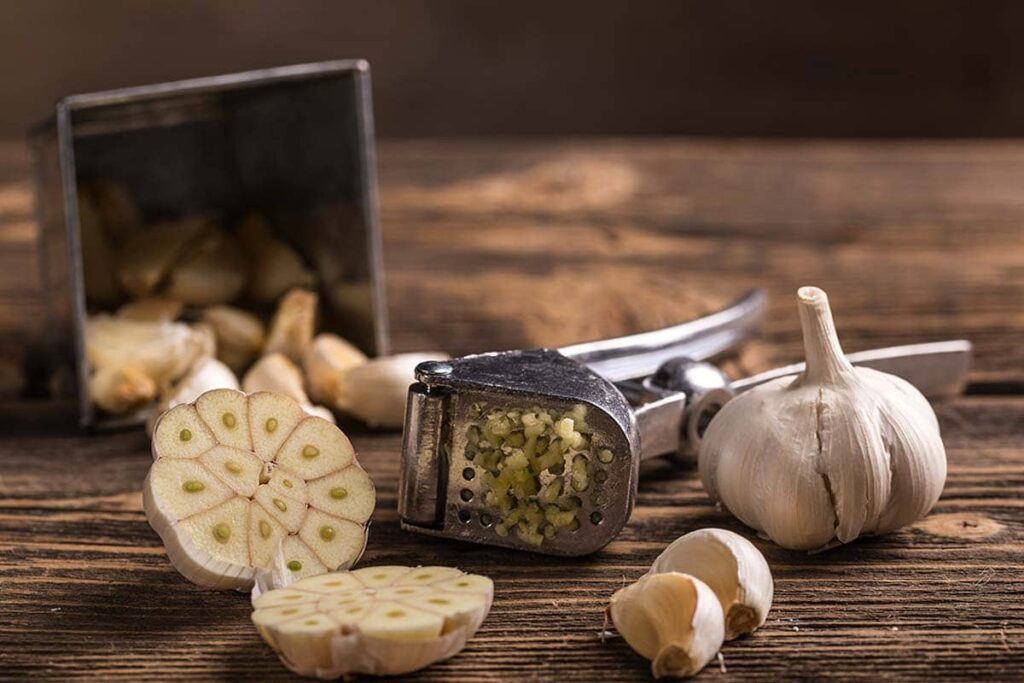
Many refer to garlic as the wonder herb, and there are many good reasons for this.
One is that garlic is a potent antimicrobial agent, inhibiting the activities of various strains of viruses, bacteria, and fungi [4].
Susceptible to its inhibitory effects are E. coli, rotavirus, lactic acid bacteria and many others [4].
Those infected with herpes can also take advantage of garlic’s virucidal properties.
According to research published in the Planta Medica Journal, garlic has active compounds such as ajoene and allicin that works on herpes simplex virus type 1 [5].
Its actions are driven by its ability to prevent viral penetration or adsorption [5].
Using garlic can minimize both the frequency and severity of the infection.
It does so by destroying the cells of the virus and by activating the production of the body’s natural antiviral called interferon.
What You’ll Need:
- One clove of garlic, crushed
Recommended Directions:
- Gently press crushed garlic on cold sores for five to 10 minutes.
- Do this three times a day for two days to get rid of oral herpes on lips.
2. Tea Tree Oil
Get rid of unsightly cold sores with the help of tea tree oil.
Tea tree oil has long been used in Australia to cure a myriad of health problems. Traditional healers mostly utilized this oil for relieving minor infections of the skin.
Recurrent oral herpes, which affects up to 40 percent of the population, can be resolved with 6 percent of tea tree oil solution, reports a 2001 study [6].
Researchers from Italy report that tea tree oil’s antiviral activity against both HSV-1 and HSV-2 can be attributed to the presence of terpinen-4-of [7].
Various studies have shown that tea tree oil can inactivate this virus in the test tubes.
Keep in mind that test tube results are not always the same as those obtained in human trials.
There have been a few reports of skin irritation among people who use tea tree oil in their mouth and genitals.
Therefore, it’s much safer to consult your doctor first or to test a small amount on your skin before using it for long-term.
What You’ll Need:
- Two drops of tea tree oil
- One teaspoon of olive oil
Recommended Directions:
- Combine olive oil and tea tree oil.
- Gargle mixture for one minute three times a day.
- For genital herpes, apply a thin layer of mixture on the genital area.
- Repeat remedy once a day for one week to get rid of mouth herpes.
RELATED: 11 Effective Ways to Use Tea Tree Oil for Warts
3. Lemon Balm
There is a comprehensive documentation of lemon balm’s anti-herpes properties [8, 9, 10, 11, 12].
It has inhibitory effects on the penetration, adsorption, and replication of the virus [10, 11, 12]. Simply put, it prevents the virus from getting into the system and multiplying to spread to other parts.
Because of its “lipophilic nature,” it can penetrate deeply into the skin and cause immediate effect [12].
All these are good enough reasons to use lemon balm as a home remedy for genital herpes or-or oral herpes simplex.
What You’ll Need:
- Five drops of lemon balm oil
- 1 cup of hot water
Recommended Directions:
- Let lemon balm oil steep in hot water for 10 minutes.
- Wait for tea to cool.
- Soak a cotton pad or ball.
- Apply on blisters.
- Do this three times a day for one week to treat herpes bumps.
4. Licorice Root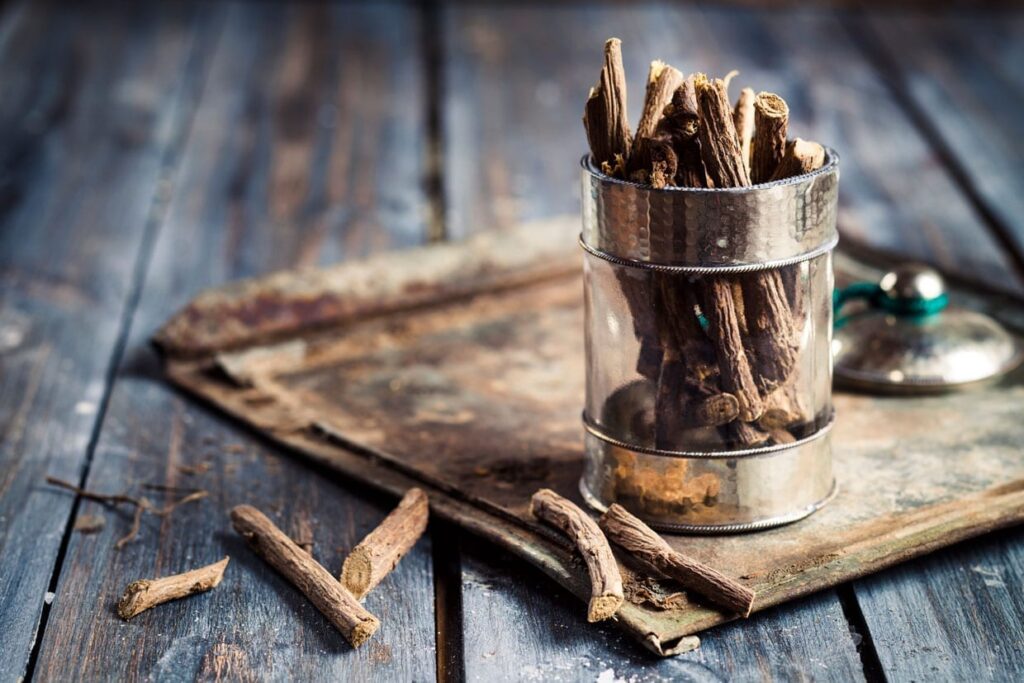
Historical records show that licorice root has been used for viral infections since the ancient times in Greece, China, and India [13].
Its active component glycyrrhizin has been tested and proven effective in viral diseases such as hepatitis B, hepatitis C, viral cirrhosis, influenza, and pneumonia, among others [13].
It is also highly effective in combating both HSV-1 and HSV-2, according to several studies [14, 15].
A 1994 study reports that this herbal remedy can prevent the plaque formation of the virus and that its active compounds are highly toxic to viral cells [14].
Researchers explain that glycyrrhizin works by preventing the virus from spreading, and at the same time, inactivating its course of action [15].
What You’ll Need:
- 1/2 tablespoon of water
- One tablespoon of licorice root powder
Recommended Directions:
- Mix licorice powder and water.
- Apply the paste on the affected area of mouth or genitals.
- Wait for two hours before rinsing.
- Repeat three times a day until condition improves.
RELATED: 11 Natural Remedies for Pneumonia Plus How to Use Them
5. Aloe Vera
For thousands of years, aloe vera has been utilized in Egypt, India, Greece, China, and Japan for its wide range of curative purposes [16].
Its long list of uses includes treatment of herpes viral infection.
Various studies suggest that it is an effective treatment for herpes affecting the genital area [17, 18,19, 20].
Clinical data from these studies confirm that it can successfully inhibit the growth and spread of herpes simplex virus type 2 area [17, 18,19, 20].
Because it has wound healing properties, you can be sure that any open lesions that you have on your mouth or genital area will clear more quickly without leaving any scars behind.
Not only does aloe vera help treat herpes infection, but it also speeds up the recovery of your skin from wounds and sores.
What You’ll Need:
- One leaf of aloe vera
Recommended Directions:
- Cut aloe vera leaf into two.
- Squeeze out the gel.
- Put gel on the sores.
- Repeat remedy twice a day for three to four days.
RELATED: 11+ Health Benefits of Aloe Vera Oil (Backed by Scientific Evidence)
6. Hydrogen Peroxide
Hydrogen peroxide is another natural disinfectant and works just as effectively as apple cider vinegar.
The oxygen molecule in hydrogen peroxide has antiviral effects on the herpes virus. The chemical can fight off the virus in the quickest possible time and relieve the associated symptoms of the medical condition.
You can either use hydrogen peroxide topically or as mouthwash to get rid of herpes. Here are the methods to follow.
What You’ll Need:
- One tablespoon of food grade hydrogen peroxide
- Cotton ball
- Water
Recommended Directions:
- Soak a cotton ball on hydrogen peroxide and dab it on the herpes sores.
- Allow the chemical to work on the inflammations for 15 minutes.
- Wash off using water.
- Alternatively, dilute hydrogen peroxide on 1:3 ratio of clean water.
- Rinse your mouth with the solution to heal herpes cold sores.
- Repeat the treatment 3-4 times daily.
7. Echinacea
Most people turn to Echinacea for colds, cough, and other respiratory infections.
Did you know that it’s also a practical solution for herpes that you should try if you want to get rid of this problem once and for all?
According to a study found in the Pharmaceutical Biology, the stems, flowers, and leaves of this plant have potent antiviral mechanisms that can protect against herpesviruses [21].
Some of its virucidal actions are due to its cichoric acid and polysaccharide components [21].
In another study, published in the same journal, stated that that the root of Echinacea can also fight HSV-1 and HSV-2 [22].
What You’ll Need:
- One bowl of water
- One teaspoon of Echinacea
Recommended Directions:
- Add Echinacea to water.
- Use a clean cloth to dap on the water, and apply on sores.
- Use this technique once a day for one week to get rid of herpes naturally.
8. Peppermint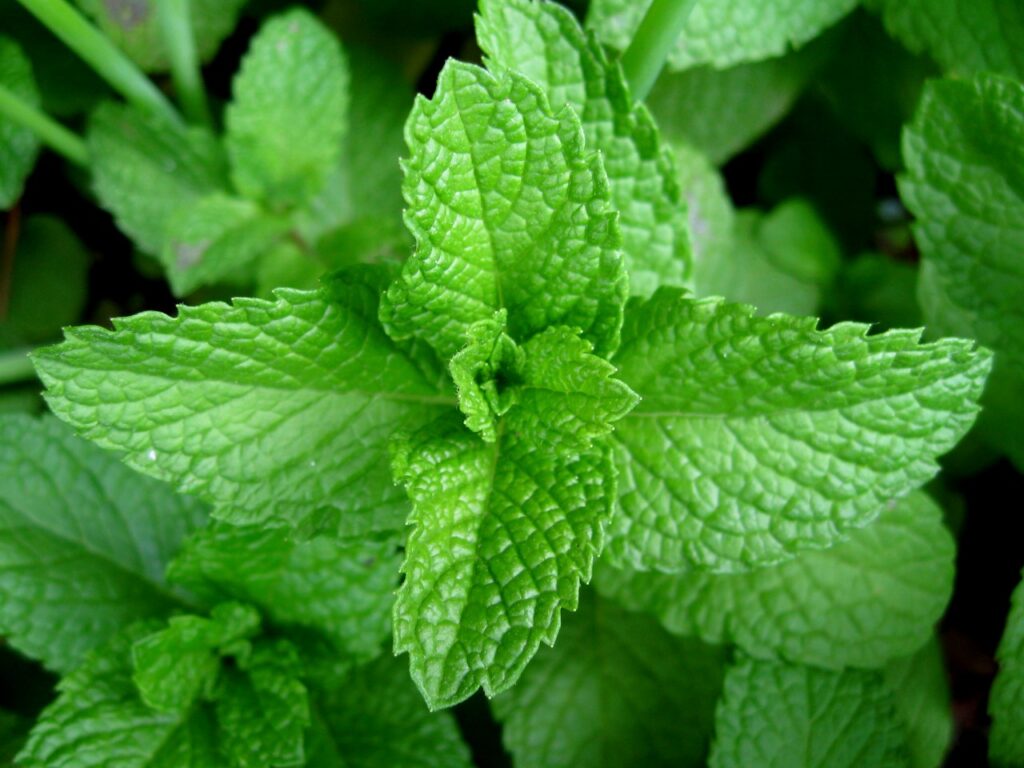
Most people use peppermint to freshen up their breath. However, this is just one of the many benefits that you can enjoy from this versatile herb.
A team of German scientists confirms that peppermint has virucidal actions against herpes simplex virus type 1 and type 2. In fact, it reduces viral plaque formation by up to 99 percent [23].
It was noted however that the virucidal effects of peppermint occurred before the virus penetrated into the host cell, and not after which means that peppermint should be used as a preventive measure, or at least, during the early stages of the infection.
Other studies were done on this subject also release positive findings that indicate peppermint’s efficacy as a treatment for herpes [24, 25].
The antiviral activity of peppermint depended on its concentration
However, don’t use peppermint in large doses, as it has been reported to have a few minor side effects.
What You’ll Need:
- Two drops of peppermint oil
- One tablespoon of jojoba oil
Recommended Directions:
- Combine the two oils.
- Apply mixture gently on the affected area.
- Follow this procedure twice daily for one week.
RELATED: 12 Uses and Health Benefits of Peppermint Oil
9. Coconut Oil
Coconut is cultivated all over the world for its multitude of practical uses, not only for industries and cosmetics but also for the health.
Its oil is one of its many parts that are used for their therapeutic properties in traditional medicine.
Among the countless diseases that it can help cure is herpes. Coconut oil is one of the best home remedies for vaginal herpes.
An extensive review of antimicrobial studies done on coconut mentions that its oil contains a chemical called monocaprin, which can kill the herpes virus within one minute [26].
Topical application of coconut oil, even in large amounts, has been found to be safe and effective.
You don’t have to worry about skin irritation and other adverse side effects.
What You’ll Need:
- 1 quart of virgin coconut oil
- One tablespoon of coconut oil
Recommended Directions:
- Drink virgin coconut oil throughout the day.
- Do this daily until symptoms disappear.
- Apply coconut oil on open sores around the mouth or in the genital area.
- Let it sit for at least 10 minutes before rinsing off with warm water.
- Repeat procedure twice a day for one to two weeks, or until the infection is cleared.
RELATED: Coconut Oil for Herpes: How Effective?
10. Olive Oil
If you have heard of the French paradox, then you know about how the French would eat a lot of creamy and rich dishes but remain slim and healthy.
Many believe that olive oil has something to do with this.
It is a widely held belief that it is the olive oil component of the Mediterranean diet that results in lower morbidity and mortality among those who consume this diet [27, 28].
Needless to say, olive oil is very healthy.
Most of its benefits can be attributed to its oleic acid and phenolic acids that have been proven in scientific literature to be a potent anti-inflammatory, antimicrobial, and antioxidant agents [28].
It shouldn’t come as a surprise that some people also rely on olive oil as a home remedy for a herpes outbreak.
The active compounds in olive oil demonstrate a broad spectrum of antiviral activities, which includes inhibiting the activities of herpes virus [28].
Not only would you benefit from cooking with olive oil, but you can also treat viral infections like oral and genital herpes with it.
What You’ll Need:
- 1 cup of olive oil
- Five drops of lavender oil
- 1 teaspoon of beeswax
Recommended Directions:
- Warm olive oil in a pan.
- Add lavender oil and beeswax.
- Remove from heat.
- After the mixture has cooled, apply for infection.
- Do this once a day for one week.
RELATED: Olive Oil on Face: 6 Benefits + How to Use It
11. Chamomile Oil
Among the essential oils tested for efficacy against HSV-1, chamomile oil was the most potent. Amazingly, it reduced plaque formation of this virus by nearly 100 percent [29].
Another study performed by German scientists validates its inhibitory effects on HSV-2 [30]
It works before the adsorption of the virus, making it a highly viable candidate for a topical formulation for the treatment of herpes infections [30].
These results indicate that chamomile oil is indeed a reliable solution for both oral and genital herpes.
What You’ll Need:
- Three drops of chamomile oil
- One teaspoon of almond oil
Recommended Directions:
- Combine almond oil and chamomile oil.
- Smear gently on infected sores.
- Cover with cool towel.
- Repeat remedy twice daily until cold sores are gone.
RELATED: 14 Health Benefits of Chamomile Tea (Backed by Science)
12. Honey
Honey isn’t just a healthy sweetener that you use instead of sugar.
It has long been recognized as an effective remedy for a vast array of health and skin problems, thanks to its antimicrobial, moisturizing and soothing properties.
If you’d like to get rid of recurrent herpes, honey can also help.
In 2003, a group of scientists from the United Arab Emirates conducted a comparative analysis of the efficacy of honey and acyclovir cream in treating both oral and genital herpes [31].
Out of the 16 adult patients who used both remedies, those who applied honey on their lesions reported quicker healing and recovery [31].
Apart from working more effectively, honey also had fewer side effects compared to the cream product [31].
Three of the patients who used acyclovir complained of local itching after a few days of use [31].
What You’ll Need:
- One teaspoon of honey
- One glass of water
Recommended Directions:
- Spot apply honey on oral lesions for cases of oral herpes.
- Wait for 10 to 15 minutes before rinsing off with cool water.
- Don’t forget to dry completely afterward.
- For genital herpes, dilute honey in water and use it to wash the affected area.
- Repeat these remedies twice or thrice a day until the sores heal.
RELATED: 10 Health Benefits of Honey (Backed by Science)
13. Oregano Oil
A perennial herb that you can commonly find in North America, Asia, and Europe, oregano is a popular spice in Western cuisine and herbal remedy for many types of ailments [32].
Both traditional healers and modern scientists acknowledge the powerful antimicrobial properties of oregano oil.
It’s for these that oregano oil has become known as an effective natural treatment for oral and genital herpes.
An experiment featured in Food Chemistry Journal reports that scientists from China and Hong Kong identified six new phenolic compounds from oregano [32].
These newly identified compounds have been found to have strong antioxidant effects [32].
They can also inhibit the activities of various types of viruses and bacteria, including those that cause herpes infections [32].
Researchers conclude that oregano oil is not only beneficial for those with herpes and other viral or bacterial infections, but also for healthy people [32].
What You’ll Need:
- Five drops of oregano oil
- One teaspoon of almond oil
- Three drops of oregano oil
- 1 cup of water
Recommended Directions:
- Mix five drops of oregano oil and almond oil in a bowl.
- Soak a cotton ball into the mixture.
- Spot apply the oil mixture to oral sores.
- Leave it on for 15 minutes before rinsing or wiping off with a clean towel.
- For genital herpes, add three drops of oregano oil to water.
- Use this to wash the affected area after bathing.
- Follow these remedies two to three times a day for one week.
Indeed, herpes can be a big boulder stopping you from doing many activities. It surely can hamper your day-to-day as well as your nocturnal activities.
Whether it’s oral sores or genital herpes, you’d surely want to get rid of this problem right away.
Consider using these home remedies, which are not only safe but also effective.
14. Apple Cider Vinegar
Apple cider vinegar or ACV is a panacea or cure-all home remedy. The powerful kitchen ingredient is a combination of acetic acid and alcohol.
Apple cider vinegar contains astringent, antimicrobial, antiviral, and anti-inflammatory properties to inhibit the growth and spread of herpes simplex type 1 and 2. This natural disinfectant can reduce the breakouts of herpes and the pain and irritations caused by the infectious disease.
What You’ll Need:
- One tablespoon of raw or mother ACV
- A cotton swab or ball
- Lukewarm water
Recommended Directions:
- Soak the cotton swab on undiluted ACV.
- Apply the ACV soaked cotton swab on the herpes sores.
- Let the ACV work on the affected area for 30 minutes.
- Rinse off the skin area using lukewarm water.
- If you experience too much skin irritation, you can dilute ACV with a little bit of water.
- Repeat the home remedy for herpes 3 to 4 times daily for three days.
RELATED: Top 10 Benefits of Apple Cider Vinegar for the Skin
15. Petroleum Jelly
Petroleum jelly (petrolatum) is a mixture of mineral oils and waxes has been used for a very long time to heal wounds and burns.
Petroleum jelly, discovered in 1859, has been used since then to provide relief from dry skin, heal minor skin scrapes and burns, prevent chafing, and provides many more benefits to help seal the skin with its water- protective barrier.
In fact, a study conducted in 1994, evaluated the analgesic efficacy and safety of 9% lidocaine in petrolatum ointment in patients with acute herpes zoster [33].
The Ointment was applied to the affected skin of 22 patients to see its effect on their skin for a 20-hour interval [33].
The results showed that mean pain, tenderness, and cutaneous sensation scores were reduced from 4 to 20 hours after its application [33].
Hence petroleum jelly can help to soothe the skin problems and irritations caused by the infectious disease.
What You’ll need:
- Petroleum jelly (Vaseline)
Recommended directions:
- Clean the affected area with plain or salt water
- Apply petroleum jelly on the affected area for some time and leave it there
- Apply Vaseline to the affected are two to three times a day
- Remember to wash your hands properly after applying Vaseline
Prevention Tips
The home remedies mentioned above are ways to treat herpes once diagnosed, but it’s always better to reduce the risk of developing or passing genital herpes.
Here are some ways to prevent herpes from passing:
- Don’t kiss someone with cold sore around the mouth
- Use condoms while having sex or have sex while the symptoms are present
- Wash your hands thoroughly after applying any medication and apply medication with cotton swabs to reduce contact with sores.
Some Q&A About Herpes
How common is herpes among the general public?
In the US, more than 50 percent adult has oral herpes or cold sores. On the other hand, genital herpes occurs in those who are sexually active and some groups of people are at higher risk than another.
After the herpes virus has entered the body, next to what?
Herpes simplex and other herpes viruses create a small but permanent colony of viral particles in the body after they enter it. This colony is there for a lifetime, though, mostly inactive. The virus attacks suddenly. Outbreaks happen when an irregular lesion forms on the skin and then the problem continues.
How do I self-diagnose genital herpes?
Usually, herpes stays in the body in an inert state. That is why people do not show any symptoms. However, mild symptoms may appear which can be mistaken for something else. Herpes sores usually appear as blisters around the genital areas. If these blisters break away and leave painful sores and if they take more than a week to heal then be sure that you have contracted genital herpes.
For starters, you can try using home remedies to treat herpes. However, if the symptoms go bad, then you should go and get yourself examined by a doctor.
What medications should I use if the symptoms of herpes are not reducing naturally?
No drug can kill the herpes virus permanently. However, doctors prescribe an antiviral drug such as acyclovir (Zovirax), famciclovir (Famvir), and valacyclovir (Valtrex) that prevents the virus from multiplying and reduce the severity of the symptoms.
What to eat to get rid of a herpes outbreak?
Foods rich in L-lysine, vitamin C and zinc, orange and red vegetables, fish, and lean protein containing food must be taken to help reduce herpes outbreak.
How long does it take to get rid of herpes with medication?
Taking medications can reduce the symptoms of herpes. If you’re initially diagnosed with herpes, doctors recommend antiviral drugs which takes a period of ten days for the therapy and provide relief of the symptoms.
If the symptoms don’t reduce then after that two types of treatments are usually recommended for herpes-like intermittent treatment and suppressive treatment. Suppressive treatments are recommended for patients who have more than six outbreaks a year, and many people find the reduction of outbreaks by 70-80% using such a treatment if taken daily.
Can you get herpes on your tongue or mouth?
Yes, herpes on your tongue and mouth is known as oral herpes. Usually, oral herpes clears on its own, within a week or so.
Does herpes affect pregnant woman gravely?
If you are an expecting mother, then it is very rare for you to pass on herpes to your child. Usually, a mother passes on the antibody to the child during pregnancy, but they usually don’t pass on herpes. However, women who contract genital herpes during the third trimester of their gestating period are at a higher risk of passing herpes to their babies. Therefore, you should be very careful about it!
Wrapping Things Up
To prevent yourself from contracting herpes, you should abstain yourself from having sex with someone who may have it. If you and your partner are both herpes-free, then you will not get herpes. Also, trying a healthy way to safe sex can help you from contracting or getting infected with herpes.
Let us know how you progress with the home remedies discussed here to get rid of herpes. Write your feedback in the comment section. Stay safe!
READ MORE: How to Use Alum for Canker Sores: 3 Best Home Remedies
